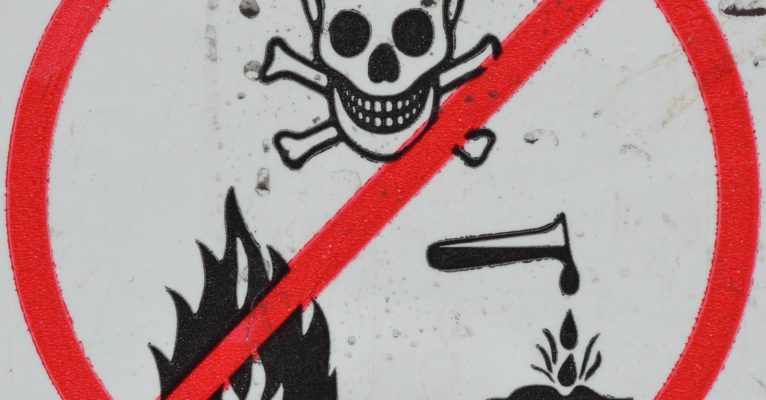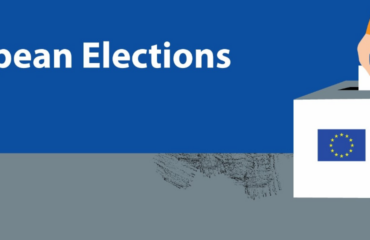Post-Brexit options for UK chemicals law

What may happen to UK chemicals policy after Brexit? As a way of understanding why Brexit poses such challenges, I look at the origins of chemicals policy, its place in environmental policy and its peculiarities.
Chemicals Policy is little known
The first point to make is that chemicals policy is very little known outside industry circles, which is why I call it ‘the Cinderella of environmental policy’. There are several reasons for this ‘outside status’. First, the subject is very complicated, which puts people off, including many environmental NGOs.
Another reason is that national politicians have left the subject to the EU and so rarely think about it themselves. Brexit has forced them to begin doing so. Mary Creagh MP recently noted what a learning curve the Environmental Audit Committee (EAC) had to climb when they enquired into the EU’s regulation on the Registration, Evaluation, and Authorisation of chemicals (REACH), which regulates the release and use of chemicals in the EU.
A further reason is that the industry keeps all too quiet, meaning that chemicals are not part of public and political discourse. It is doubtful whether Michael Gove had ever heard of REACH when he was leading the LEAVE EU campaign. Now REACH is one of his worst headaches at DEFRA.
The originality of chemicals policy
The first aim of environmental policy is to sustain living conditions for plants and animals now and into the future. Chemicals policy is part of pollution policy, which is part of environmental policy. But it is different in important ways. It is also highly original.
Water, air and waste policies are largely about managing discharges of harmful substances once they are waste, while chemicals policy is about managing harmful substances before they become waste. It therefore looks ahead. It can involve the precautionary principle. Assessing harmful effects is a first step. Restricting production, sale and use in articles and processes then follows.
Chemicals policy is therefore more closely entwined with trade policy than almost any other area of environmental policy. REACH prevents ‘non-tariff barriers’ being created by different national standards, so Gabrielle Edwards of DEFRA was quite right to call it a ‘single market mechanism’ when she gave evidence to the EAC with Thérèse Coffey.
Anyone manufacturing products anywhere in the world and exporting to the EU is bound by REACH. Because of the size of the EU market REACH has become a global standard setter.
REACH has created a collaborative institution
Pollution policy sets standards and procedures. But REACH has also established an EU institution – the European Chemicals Agency (ECHA) – to assess chemicals and where necessary to restrict their use. Many EU Member States had their own institutions for dealing with air and water pollution, and nature protection, long before the EU had an environmental policy. None had an institution comparable to ECHA. In this respect chemicals policy is unique.
Chemicals policy in its modern form only really started when the OECD decided to enter the field. I mark its beginnings from 1973 when the OECD called for a ban on certain uses of polychlorinated biphenyls (PCBs). The chemicals industry was starting to grow very rapidly and the OECD realised that its environmental impacts were sufficiently serious that international discussion was needed to manage them. They decided that the task of assessing chemicals needed to be shared and coordinated between countries.
It is interesting that it was an economic inter-governmental think tank that pioneered chemicals policy. The EU then picked up parts of OECD’s work (on test procedures and good laboratory practice, for example) and incorporated these into the legislation it then developed. The 1979 Directive on the testing of new chemicals before marketing is the foundation on which REACH has been built. It required manufacturers to assess any new chemical and to send a ‘notification’ to the national competent authority. The Commission then circulated the ‘notification’ to the competent authorities in all Member States so that any one of them could comment and object to marketing throughout the EU, which was otherwise assured. So from the beginning there was a partnership between countries with the weaker relying on the stronger.
The Commission then created the European Chemicals Bureau to do the administrative work and to collect all the data together. That role was taken over by the larger and more powerful ECHA when REACH was adopted. ECHA is much more efficient than each Member State replicating the same activities.
REACH and Brexit
Because REACH is based on collaboration, Brexit is bound to create major challenges. Unless the UK can negotiate full adherence to REACH, problems arise. Even if the UK publicly says it wants to remain REACH compliant it has to plan for the ‘cliff edge’ of failed negotiations.
- Will the UK have to create an expensive new institution to gather material comparable to that gathered by ECHA? ECHA has said the UK will not have access to its database post-Brexit.
- Will the UK set up its own registration system so that UK manufacturers will have to register twice?
- Will the UK just replicate future EU standards, as REACH evolves, in order to have the ‘frictionless trade’ with the EU that the Government says it wants? Or will standards diverge?
- Will the EU allow the UK to ‘cherry pick’ which bits of REACH it wants, or will it be ‘all or nothing’?
The uncertainties are considerable. Thus to ensure the best possible regulatory outcome post-Brexit, the chemicals industry – like other industries – needs to speak up for its own self-interest and proclaim the benefits of REACH and the importance in continuing to shape its evolution.
About the author
This blog post is based on Nigel Haigh’s presentation at the Conference run by Chemical Watch, Tech UK and CHEM Trust, 29.09.2017. Nigel Haig is the leading expert on the development of European policies on the environment and author of several books on the topic. He is an Honorary Fellow and Former Director of IEEP.





Ahmad Mahdavi
29th April 2020 at 12:23 pmWhat would be the impact of COVID time on UK chem laws and regulations? However, as the EU is already thinking to help the MENA countries for these regulations (Hopefully!) now there will be a good opportunity for the UK to play its role to help. Chemicals/ pesticides laws and regulations are global issues and need cooperation and help from developed world to developing countries. I was in Cambridge last Sept for the SAICM.